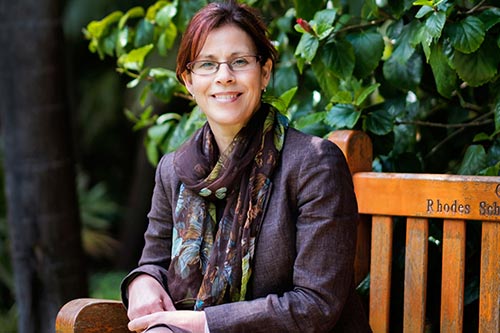In early February the UWA Executive commenced working on the planning processes for the University’s decadal strategic vision. We were fortunate to have external representatives from the sector join us, providing invaluable insights and challenges, contributions and global perspectives. This is the beginning of an exciting 18-month process in which our 2030 Vision will be developed through deep engagement with our academics, the student body, and the wider UWA community – including of course our alumni. Together we will build a strategy which will see the University continue to deliver value to its students and to the broader communities we serve.
As we embark on this new planning cycle we are challenged by the changing nature of the world of work, resulting from increasing automation and computerisation. We have to ask what else we can do to further improve our degree programs and keep them relevant and cutting edge in this changing world. We need a frank and open discussion, and we must be receptive to new ideas and possibilities.
In particular, as future workers can expect to have several quite different careers over their lifetimes, we need to consider how the University can better deliver lifelong learning, retraining and reskilling – including on-the-job and at-the-workplace training with business partners and with other tertiary education partners.
In addition to job specific training we need to ensure that our courses continue to deliver graduates with the skills and personal attributes to adapt and to thrive.
 When I look back over the last 50 years of higher education, it seems that we have gone from a world where very few people had a degree and the value of a university education was in its broad preparation for life, into a period where a degree has become commonplace and there is increased focus on vocational specialisation. I believe we are now transitioning to a phase of continuing mass higher education, but with emphasis back on graduate skills, attributes and adaptability – all contributing to employability.
When I look back over the last 50 years of higher education, it seems that we have gone from a world where very few people had a degree and the value of a university education was in its broad preparation for life, into a period where a degree has become commonplace and there is increased focus on vocational specialisation. I believe we are now transitioning to a phase of continuing mass higher education, but with emphasis back on graduate skills, attributes and adaptability – all contributing to employability.
A decade ago when UWA, along with Melbourne, took its first steps towards a degree model with broad undergraduate degrees and vocational masters degrees, it was because we saw this coming. Feedback from Australian employer groups and professional associations repeatedly emphasises the need for graduates who are equipped not only with specific disciplinary expertise, technical knowledge, but also have broader graduate attributes such as a global perspective, critical thinking, and teamwork skills.
Our triple helix model instils social responsibility and delivers community impact by combining research, teaching and community engagement. Other universities, most recently The University of Sydney, are also placing increased emphasis in their undergraduate degrees on these broader skills.
We will not be standing still over the next 18 months while we work on our 2030 Vision. Among other things, we will increase the emphasis on research led teaching as the hallmark of a UWA degree, invest in growing student mentoring opportunities, and will incorporate further work integrated learning experiences into our degrees.
We have an exciting and productive time ahead of us. I look forward to involving you in this discussion in the coming months.